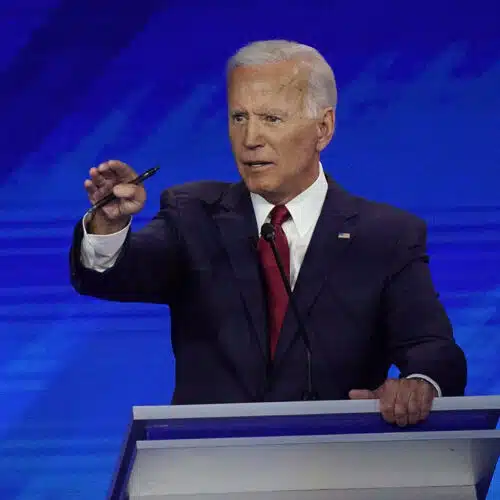Council voted to pass ordinances prohibiting medical marijuana dispensaries in Imperial Beach, with the exception of one vote in favor by Councilman Brian Bilbray. His sister Briana also spoke in favor of medical pot. Their father was mayor of IB in the 1980s.
By Albert Fulcher | Published in Imperial Beach Patch
Silence fell over City Hall Wednesday evening as 24-year-old Briana Bilbray told the Imperial Beach City Council about her struggles with Stage 3 melanoma cancer that had spread into her lymph nodes.
Her father, Brian Bilbray, was the mayor of Imperial Beach from 1978 to 1985 and currently represents north San Diego’s 50th Congressional District. Her brother Brian Bilbray is a City Councilman.
She said she is in the last stages of chemotherapy and was disappointed in comments made by Councilman Ed Spriggs at the last council meeting about medical marijuana dispensaries in Imperial Beach.
“I read in an article a quote from Spriggs saying that chemo patients don’t have to go that far to get the medicine they need,” she said. “Reading that comment, I can tell Mr. Spriggs really doesn’t understand chemo at all.”
She said the words nausea and fatigue are “really pretty words” compared to the actuality of its consequences.
“Tired is an understatement from what you feel, Mr. Spriggs,” said Briana Bilbray. “You feel like you just want to die. I didn’t even want to breathe I was so tired.”
Her brother, Mayor Pro Tem and Councilman Brian Bilbray, reiterated his support of allowing medicinal marijuana in Imperial Beach, unlike the rest of the City Council.
He called it irresponsible and said if the city will not provide a dispensary, it should model Chula Vista allowing collectives and cooperatives in the city.
“But something we all need to think about is that it is not our jobs to sit up here and say who and who does not need medical marijuana,” said Councilman Bilbray.
“That is between them and their doctors. Our job is just to say if people in the city actually need this, and what is the responsible thing for the city to do to avoid extra cost to the city through litigation or putting it on the ballot. It is going to cost the city more. Again, I will not be voting for this.”
Briana Bilbray brought about $200 worth of nausea medicine with her and said they are “not worth a lick” and useless for her condition.
In contrast, she said one dose of medical marijuana relieves her for an entire day. Banning dispensaries does not punish the abuser but the patients in need, she said.
“You have no idea. It is like the difference between night and day for chemo patients,” she said. “Not only are you infringing on my right as a California resident to obtain the medicine I need, but you are punishing me by making it more difficult to get the one thing I really need.
“It is one of the worst feelings imaginable,” she said.
City Manager Gary Brown presented two items before City Council on Wednesday related to the ban: a second reading of zoning regulations for medical marijuana distribution facilities and a first reading of the ordinance related to business licenses.
He said this is a result of council instructions to change the minimum or maximum number of people with the ability to cooperatively and collectively, use, cultivate and distribute medical marijuana from “two or more persons” to “four or more.”
Spriggs said council did not have the opportunity to examine the amended change of people’s ability to use, cultivate or distribute marijuana collectively or cooperatively and said the language “four or more” is an exemption of the ordinance prohibiting dispensaries for three people, and his concern is it can lead to activity the city is attempting to avoid.
“That’s the point. Four or more,” Spriggs said. “If we have this exemption of three or less, what are the worst case scenarios of three of less overriding the ordinance against medical marijuana dispensaries within the city limits? Can you operate something akin to a dispensary?”
City Manager Gary Brown said he did not think it would approach the dispensary patterns seen throughout the region, having three or fewer people operating as a cooperative.
“Probably doing it in a back yard,” Brown said. “I am not sure if it would be legal, but in effect I don’t think there would be much of a chance that a formalized business dispensary would be open. It is likely that somebody might try and have something in their neighborhood.”
Spriggs said increasing the number from two or more to four or more, cultivating, dispensing and using opens the opportunity for various trials of “these kinds” of operations. He said two or less has less chance of these types of operations to occur. “I clearly said earlier, the issue is not legitimate users, it was the abundant testimony we had regarding abuse by people that do not have legitimate medical marijuana need,” he said.
City Attorney Jennifer Lyon said the current state of law talks about an affirmative defense for those who get together to cooperatively and collectively, use, possess and distribute marijuana.
“There is nothing currently in the law that is a mandate to every city to locate a cooperative or collective in your city,” she said. “The cases and the law that is out there suggest that cities have the ability to regulate location and establishment of dispensaries, cooperatives and collectives. They have zoning power. That is one of the fundamental rights of the City Council.”
Spriggs said if this evolved into a business that only legitimate patients used, the council would have a completely different view.
“I have no ax to grind for anybody that really needs it,” he said. “But we have this huge abuse situation, demonstrated in many communities. There is no reason to think that we would be immune for some strange reason from the abuses that have taken place elsewhere.”
Marcus Boyd, vice chairman for the San Diego Chapter of Americans for Safe Access, said four cancer patients came to his office since the last council meeting June 15 and every one of them made him cry.
He said he was disappointed with the “perversion of the political process” over two years on this issue. He said council has “trampled the rights of those that are injured, sick and dying.”
Council member Lorie Bragg said it was unfair to say council had not done due diligence.
“We have all done outreach across the board to many members of the community,” she said. “When we vote on something, it is because we have talked to many people. And our vote reflects what the majority of the people want us to do.”
Boyd said council made its decision in private meetings, based on “Reefer Madness” propaganda provided by the Sheriff’s Department, overturned state law and intimidated medical marijuana patients at the last council meeting.
“At the last council meeting speaking on this issue when patients plead with you not to break the law, you ridiculed them,” Boyd said.
“And you attempted to alienate them from the political process. You had a large contingency of county sheriffs lined up outside intimidating every patient that walked through the door. And, to top it off, the deputies took out their cameras and began snapping pictures of the patients.”
Councilman Jim King said the issue boils down to providing availability for patients and determining where patients can find the substance. He said council looked at it in the terms of the size of our city.
“I personally believe in one regard it would be nice to accommodate it,” King said. “But in the other regard there are things that have not been worked out and problems that are consistent in a number of dispensaries.”
King said he read all the material. He said the constant referral to council falling under “Reefer Madness” was incorrect.
“I do not want to deny anyone’s access. This is not an easy issue on a community-based level,” he said.
Boyd said council might think it is putting this issue to rest but assured that the issue will stay “front and center” in 2012 elections.
“It is not too late to change course,” he said. “I urge you to table this vote tonight. Give the facts and findings about this lands use issue a fair and balanced review. The sick and dying patients deserve at least that from you.”
Mayor Jim Janney motioned to adopt the report and the June 15 staff report and to adopt resolution 2011-70.
Motion to wave further reading and adopt zoning ordinance 2011-1119, “to add Chapter 19.61 to the municipal code, relating to medical marijuana distribution facilities for submission to the California Coastal Commission.”
“Medical marijuana distribution facilities are prohibited uses in all zoning districts in the city of Imperial Beach. The city shall not issue, approve or grant any permit, license or other entitlement for the establishment or operation of a medical marijuana distribution facility in the city of Imperial Beach.”
Motion to dispense first reading of ordinance 20111-118 amended “any facility where four or more qualified patients, persons with identification cards and primary caregivers meet or congregate collectively and cooperatively to cultivate or distribute marijuana for medical purposes” and “set the matter up for adoption at our next regularly scheduled City Council meeting to July 20.”
The motion carried, with all but Bilbray voting yes on all motions.


